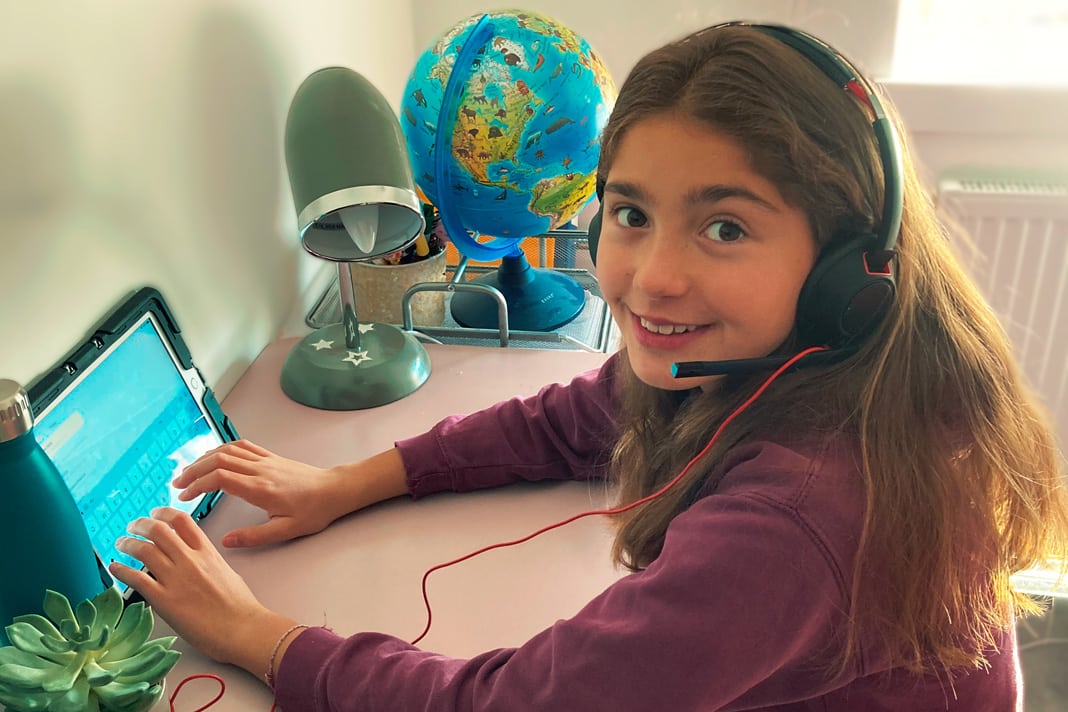Finding new ways of educating students, whenever and wherever, better meets the needs of global families, says Mireille Rabaté, the Head of Lycée International de Londres Winston Churchill
There’s little doubt the pandemic has changed education forever. Of course, the traditional school model will continue to predominate, with students and teachers meeting on campus for in-person learning. But the need for COVID-19 lockdowns and online instruction during the crisis demonstrated the vulnerability of face-to-face education during emergencies and the necessity – and difficulty – of replicating it remotely. The lesson for the future is that schools must continually innovate to deliver their missions by whatever means during turbulent times.
Lycée International de Londres Winston Churchill navigated the 2020 and 2021 shutdowns thanks to a potent mix of technology, culture, and community. Since its 2015 founding, the school has made smart use of digital tools to enhance education and streamline administration. That solid technical base, overlayed with dedicated staff, engaged parents, and a collaborative and consultative framework, smoothed the transition to learning from home. Students followed predictable schedules, with lessons delivered by live video and plenty of opportunity for online group interaction. The school approach was to lead by example, with continued engagement and a strong sense of solidarity during the crisis.

Located on a five-acre campus in north London and housed in a magnificent Art Deco building, Lycée Churchill is a co-ed independent and bilingual school serving 850 students aged 3 to 18. It offers both the English-language IB Diploma and the French baccalauréat, and is rated “Outstanding” by Ofsted for sixth form and personal growth and welfare. With 100% pass rates on tough French exams and matriculation of graduates to top universities, such as Cambridge, McGill, US Ivy League and French Classes Préparatoires, the school combines academic rigour with innovation.
“The best schools aren’t waiting for the next crisis, but preparing now for a world in which students and families need flexible approaches to learning”
With young people from 45 countries and teachers and staff of 29 different nationalities, there is a strong focus on the needs of individual students within a vibrant international environment. The educational ethos is modern, combining traditional disciplines with initiative, exploration, critical thinking, teamwork, and individual development. Rather than memorising facts, students learn to be curious and open, to ask tough questions, and to express their ideas with confidence.
Since the pandemic, Lycée Churchill has facilitated additional forms of off-campus learning. “LIL Remote LIL” is aimed at students who cannot come to the school for short periods of time (usually due to travel quarantines), enabling them to stay abreast of their peers while isolating at home. The pioneering “LIL Online” is a full remote education and virtual classroom programme for students who cannot or do not want to attend school in person. The school also helps students aged 16 and above who wish to study in London but whose families cannot be there by providing extra support services.
In unpredictable times, the last thing parents want to worry about is the continuity of their children’s education. The best schools aren’t waiting for the next crisis to happen but instead preparing now for a world in which students and their families need flexible approaches to learning. The legacy of the pandemic will require nothing less.
Lycée International de Londres Winston Churchill: lyceeinternational.london
Further reading: How learning languages supports young people’s development
You may also like...






























